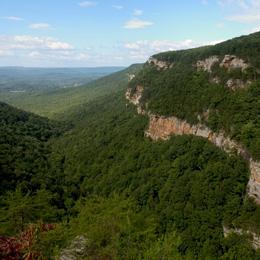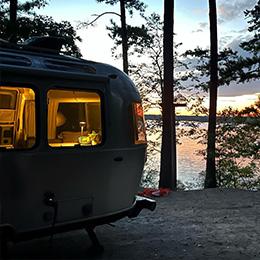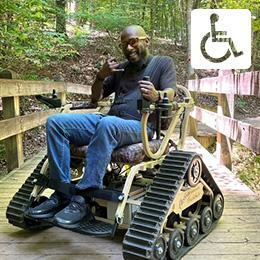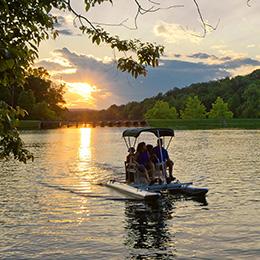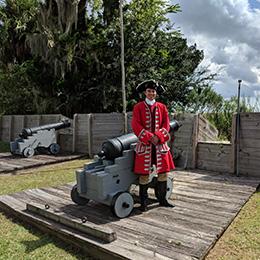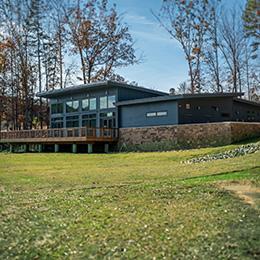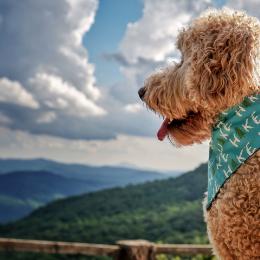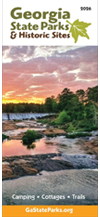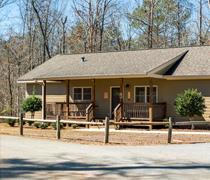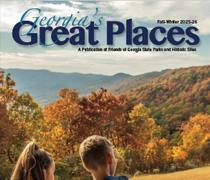Grants Administration
Information about the Land & Water Conservation Fund and Recreational Trails Programs available through Georgia State Parks & Historic Sites.
Resource Management
The Parks, Recreation and Historic Sites Division of the Georgia Department of Natural Resources created a Resource Management unit in 2005 to expand its ability to carry out the mission, vision and core values of stewardship, protection, conservation and education of our public lands.
The unit consists of a Parks Resource Manager, a Parks Interpretive Specialist, a Volunteer Resources Coordinator, a Parks Division Forester and a Parks Division Biologist. These individuals interact regularly and coordinate efforts with the Forestry Management and Wildlife Conservation Section of the Wildlife Resources Division of DNR, with Georgia Power on arborist and invasive species management projects and with the USDA Wildlife Services biologists.
Natural Georgia
Georgia’s varied environment ranges from the Appalachian Mountains to the Atlantic Ocean coast. It includes coastal plains, granite outcroppings, sand hills, salt marshes, beaches, forests, lakes, waterfalls and canyons. Wildlife and plant life is abundant. You can find alligators, gopher tortoises, tree frogs and black bears. Egrets, sand hill cranes, turkey vultures and painted buntings are common sights to birders. Live oaks, yellow daisies, cypress groves and long leaf pine habitats are a few of the native vegetation species to be discovered along with many other species of birds, animals and plants throughout the state.
Our mission, “to protect our state’s natural beauty and historic integrity while providing opportunities for public enjoyment and education” goes to the heart of our Resource Management efforts.
Leave No Trace
Visitors to Georgia State Parks and Historic Sites are asked to abide by Leave No Trace principles. These guiding principles help us protect our natural and cultural resources and preserve them for others to enjoy too!
Seven Principles of Leave No Trace
Know Before You Go
- Be prepared! Remember food and water, and clothes to protect you from cold, heat and rain.
- Use maps to plan where you’re going. Check them along the way so you’ll stay on course and won’t get lost.
- Remember to bring a leash for your pet and plastic bags to pick up your pet’s waste.
- Learn about the areas you plan to visit. Read books, check online and talk to people before you go. The more you know, the more fun you’ll have.
Stick to Trails and Camp Overnight Right
- Walk and ride on designated trails to protect trailside plants.
- Do not step on flowers or small trees. Once damaged, they may not grow back.
- Respect private property by staying on designated trails.
- Camp only on existing or designated campsites to avoid damaging vegetation.
- Good campsites are found, not made. Don’t dig trenches or build structures in your campsite.
Trash Your Trash and Pick Up Poop
- Pack it in, Pack it out. Put litter—even crumbs, peels and cores—in garbage bags and carry it home or to a garbage can.
- Use bathrooms or outhouses when available. If not available, bury human waste in a small hole 6–8 inches deep and 200 feet or 70 big steps from water.
- Use a plastic bag to pack out your pet’s poop to a garbage can.
- Keep water clean. Do not put soap, food, or human or pet waste in lakes or streams.
Leave It As You Find It
- Leave plants, rocks and historical items as you find them so others can enjoy them.
- Treat living plants with respect. Carving, hacking or peeling plants may kill them.
Be Careful With Fire
- Use a camp stove for cooking. Stoves are easier to cook on and create less impact than a fire.
- If you want to have a campfire, be sure its permitted and safe to build a fire in the area you’re visiting. Use only existing fire rings to protect the ground from heat. Keep your fire small.
- Remember, a campfire isn’t a garbage can. Pack out all trash and food.
- Before gathering any firewood, check local regulations.
- Burn all wood to ash and be sure the fire is completely out and cold before you leave.
Keep Wildlife Wild
- Observe wildlife from a distance and never approach, feed or follow them.
- Human food is unhealthy for all wildlife and feeding them starts bad habits.
- Protect wildlife and your food by securely storing your meals and trash.
Share Our Trails and Manage Your Pet
- Be considerate when passing others on the trail.
- Keep your pet under control to protect it, other visitors and wildlife.
- Listen to nature. Avoid making loud noises or yelling.
- You will see more wildlife if you are quiet.
- Be sure the fun you have outdoors does not bother anyone else.
- Remember, other visitors are there to enjoy the outdoors too.
The Leave No Trace Center for Outdoor Ethics is an educational nonprofit organization dedicated to the responsible enjoyment and active stewardship of the outdoors by all people, worldwide. The Center achieves its mission through education, research and partnerships.





